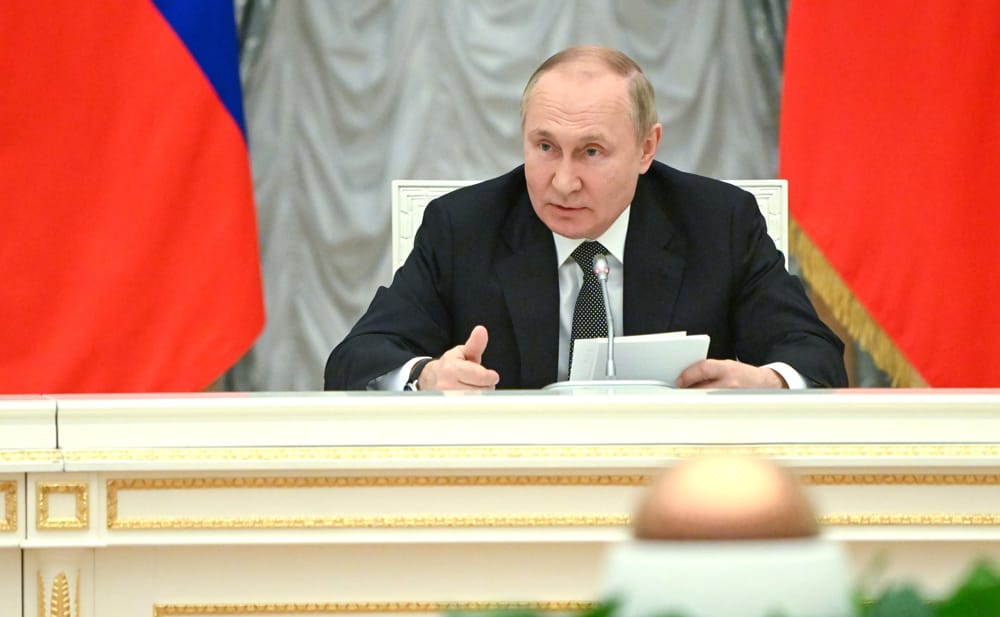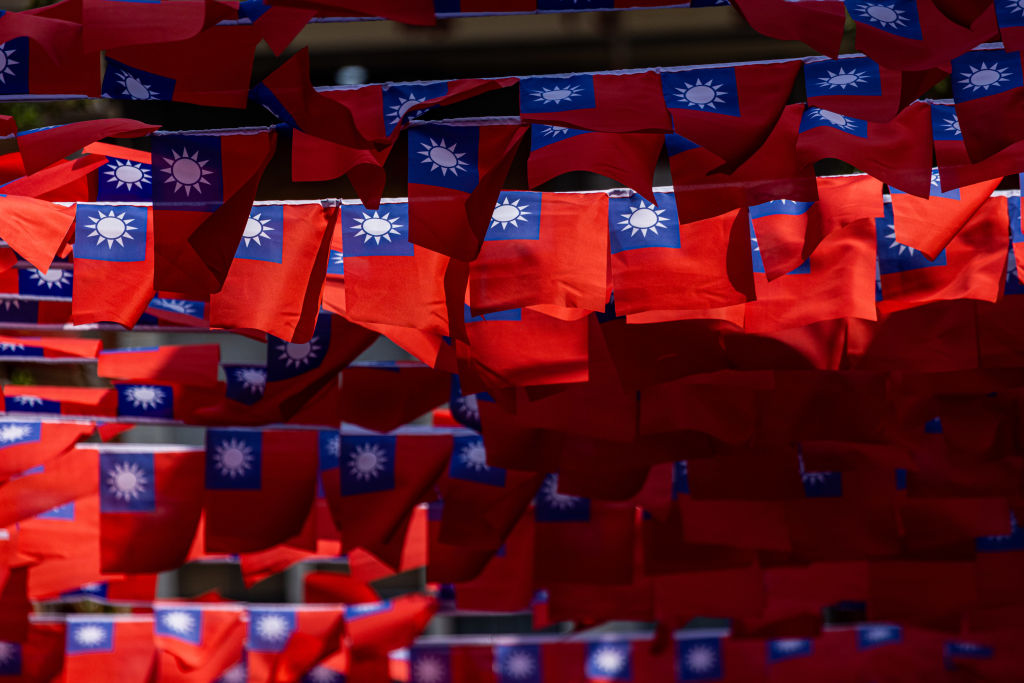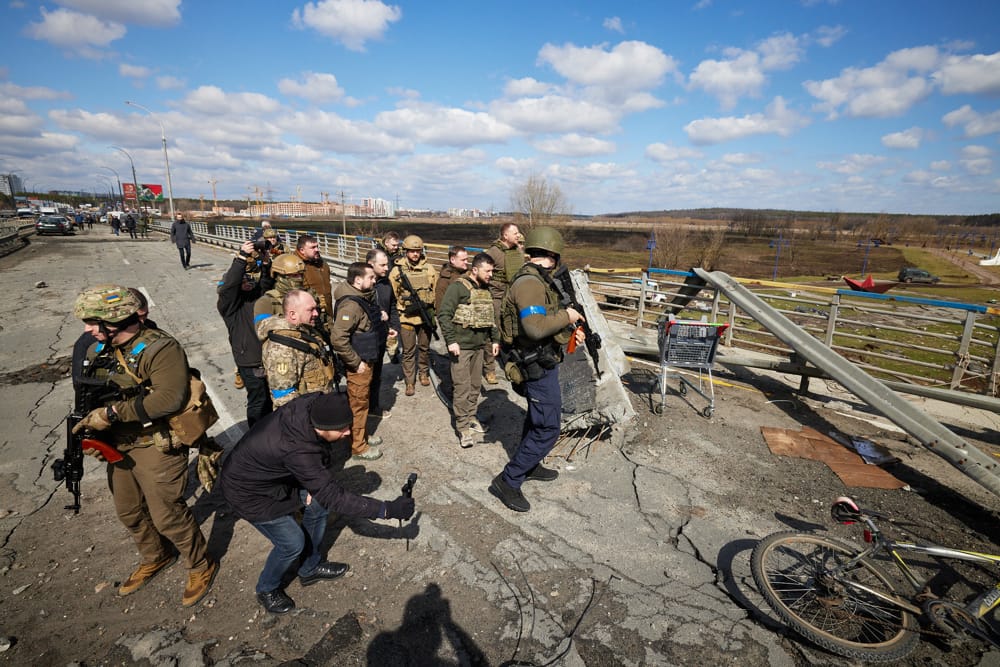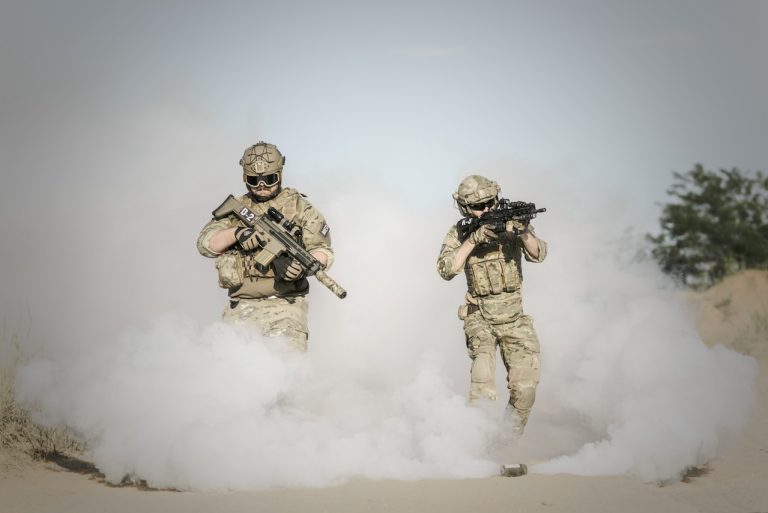The war in Ukraine is now the largest conventional (inter-state) conflict since the Korean War across a range of measures: battlefield deaths, personnel committed, ordnance used. It is also the first proxy war between nuclear-armed powers since the Russian intervention into Syria. It is therefore not unreasonable to ask what the effects of the Ukraine conflict are beyond that country and Europe. The Korean War played a significant role in hardening the Cold War stand-off, not only through prompting the creation of US alliances in Asia, but in deepening commitments to the North Atlantic Treaty Organisation (NATO) and the Warsaw Pact in Europe.
In each country in Asia, analysts and policymakers are watching the Ukraine war closely, and consciously and unconsciously deriving lessons from it: what do events in Ukraine imply for other countries in terms of what is possible, what is risky, and what competitors may be emboldened to try? Perceptions of the conflict are coalescing around four fundamental questions: why did the war break out?; how is the war being fought?; what does the war mean for global order?; and when and under what conditions will it come to an end? In the debates that attend each of these questions we can start to see some of the broader implications of the Ukraine war for Asia.
Why did the war break out?
The obvious answer to this question is that Russia invaded Ukraine on 24 February 2022; what is more contested is why Russia invaded Ukraine. Three contending answers are vying in response to this question, each with implications for Asia’s strategic affairs.
A rubicon has been crossed in the significance of information warfare, which will have major implications for deepening confrontations in Asia.
The first answer is that the West provoked Russia into attacking Ukraine by expanding NATO’s membership too close to Russia’s borders. First argued by John Mearsheimer in 2014, this contention now has many adherents, who claim that the eastward expansion of the alliance violated basic understandings between Russia and the United States in the aftermath of the Cold War, and that Vladimir Putin is justified in fearing what Russia has always seen as an offensive alliance on Russia’s borders. The strategic lesson for those who believe this answer is that great powers need strategic space; and that peace is best secured by acknowledging that the great powers require spheres of influence around their borders, irrespective of the preferences of their neighbours The implications for China’s, India’s and perhaps Indonesia’s neighbours are significant.
The second answer is that Western actions after the Cold War enabled, emboldened and provoked the Russian invasion. The use of force by NATO over Kosovo in 1999 and to blunt Gaddafi counterthrust in Libya in 2011, and the US-led invasion of Iraq in 2003, each bypassed the UN Security Council, thereby implicitly downgrading Russia’s prized status as a permanent member of that body. By brushing aside considerations of international legitimacy, these operations justified the use of force by great powers for their own conceptions of the requirements of order. Russia’s invasion was thus provoked by a need to reassert status and the perception that great powers can do as they like to smaller countries that do not have nuclear weapons. The strategic lesson of this interpretation is that order in Asia cannot be entrusted to law and institutions; the best prospect for peace is a concert of nuclear-armed great powers holding the ring.

The third answer to the question is that Putin was threatened not by NATO expansion, but by Ukraine’s preference for democracy and alignment with Europe rather than Russia. To this line of argument, Putin’s authoritarian regime is profoundly challenged by healthy democracy in culturally similar Ukraine by demolishing arguments that Western-style democracy is not appropriate for a Slavic society. Russia’s invasion, with its intent on a decapitating attack on the Ukrainian government to be followed by installing a regime sympathetic to Moscow, was all about making Russia’s “near abroad” safe for autocracy. The strategic implications of this argument are that the battle lines are now between democracies and autocracies: as the latter tighten their mutual commitments in Asia, so must the former cleave closer together.
How is the war being fought?
There seem to be three aspects of the conduct of the Ukraine war that have implications for strategic dynamics in Asia. The first is that in this apparently asymmetric contest, the smaller party is winning. A great deal of analysis has been devoted to why Russia has failed to prevail and why Ukraine has not only blunted the invasion but is reversing Russian gains. Many accounts converge around imbalances in preparation, morale and regime type; some on the nature of the terrain; and most on the effectiveness of the military equipment and intelligence supplied to Ukraine by Western countries.
The strategic implications of how the war is progressing have been to shift the “offence-defence balance” – the perceptions of analysts and policymakers about whether the current state of military technology provides a decisive advantage to the attackers or defenders in any given conflict. Increasingly sophisticated long-range precision strike weapons, the use of electromagnetic pulse to disable air defences, and developments in combined arms operations since the 1991 Gulf War had started to tip perceptions of the offence-defence balance decisively in favour of the attacking side in the minds of analysts and policymakers. It is likely this has been slowed, if not reversed, by the Ukraine war.
The strategic implications for Asia are promising, since perceptions of the potency of offence are generally destabilising because states are anxious about competitors gaining the upper hand by attacking first. A new appreciation of the power of defence, on the other hand, has likely made Chinese military planners more cautious about the likelihood of success in an invasion of Taiwan.

The second aspect of the conduct of the war is the potency of the information war. Perhaps more than any other conflict since the end of the Cold War, both sides have put significant resources into justifying their own conduct and undermining their enemy’s legitimacy. Wary of Russian information operations, from the 2008 invasion of Georgia to the 2016 US Presidential election, Western states have devoted a great deal of time and effort to collecting and publicly presenting intelligence that refutes Russian information operations. The result has been a decisive victory in “narrative control” by Ukraine and its Western backers, while providing real-time information on Russian setbacks, defeats, atrocities and war crimes. As a result, the solidarity within the West and with Ukraine has delivered ongoing materiel and moral support to Ukraine, while making it difficult for those inclined to back Russia or to abstain from commenting, to justify their positions. A rubicon has been crossed in the significance of information warfare, which will have major implications for deepening confrontations in Asia.
What remains unclear is the ultimate objective for the West. Russia’s withdrawal? Regime change? Permanent degrading of Russian power?
Third, the Ukraine war has provided the United States and its allies with the best opportunity to delegitimise and weaken an authoritarian challenger since the Soviet Union withdrew from Afghanistan in 1989. Ukraine has become a classic “proxy war”, where powerful states supply weapons, intelligence and training to defenders fighting against the powerful states’ enemy. The Soviet Union did this in Vietnam in the 1960s; the United States in Afghanistan in the 1980s. The West has established a potent position of “escalation dominance” in Ukraine, whereby it can choose the nature and timing of its degrading of Russia’s military and economic capabilities through the types of weapons and training it provides the Ukrainians and the sanctions it levies against Russia. It has placed the onus on Russia to up the ante – including by using civil nuclear reactors as shields, threatening to bomb supply routes in Europe, and sabre-rattling with tactical nuclear weapons. Despite Putin’s bluster, it is a position of weakness: the latter two measures will provide the justification for even greater degrading of Russia’s strength.
What remains unclear is the ultimate objective for the West. Russia’s withdrawal? Regime change? Permanent degrading of Russian power? Each of these possibilities, along with the unprecedented unity among Western states, will not have been unfamiliar in discussions among Chinese or North Korean strategists.
What does the war mean for global order?
The Russian invasion of its neighbour, on justifications not dissimilar in kind (human rights abuses, unacceptable foreign policy orientations) to the invasion of Iraq and operations against Kosovo and Libya, is another step along the road towards the erosion of any normative common ground among the world’s great powers. Denunciations and adverse resolutions carry little weight, while the rising stakes in the information war allow incompatible claims to jostle along with little to adjudicate between them.
The sense of a common global order, bounded by basic common interests and perceptions, is receding, with little indication of when the decay will stop. When great powers cannot even agree on shared interests, the grounds for mutual restraint and avoidance of catastrophe will continue to shrink.
Asia, arguably the most conflict-disposed of the world’s regions, gets more dangerous as a result.
Another dangerous domino to fall is the status of nuclear non-proliferation norms. By invading Ukraine in 2014 and 2022, Russia broke the terms of the 1994 Budapest memorandum, under which Ukraine, Belarus and Kazakhstan agreed to return Soviet nuclear warheads on their soil to Russia in exchange for an undertaking that they would not be attacked in future by Russia. As Russian armour rolled towards Kyiv in February, those pondering the folly of that deal would not only have been Ukrainian. Many strategists would have thought back to the attacks on Iraq and Libya, and the restraint shown to Pakistan, North Korea and Iran, to see the distinction between those who surrender their nuclear capabilities and those who press ahead, in terms of maintaining their security and sovereignty.

Moreover, by repeatedly stating that the United States will “not fight World War III over Ukraine”, President Joe Biden has caused more than a shadow of doubt in the minds of those allies relying on extended deterrence against potential nuclear-armed opponents. Options for acquiring nuclear weapons must be playing on the minds of policymakers and analysts, particularly in Asia.
And as the lines of confrontation between the West and authoritarian nations come into sharper relief over Ukraine, it becomes harder to choose one side without alienating the other. Rising tech decoupling reinforces the logic of choice over the logic of options. This is uncomfortable territory for India, Indonesia and many other countries in Asia that prefer multi-alignment as a grand strategy for managing turbulence in their international relations.
When and under what conditions will the war end?
There are broadly three endgames to this war, each with its particular strategic implications for Asia.
The one least likely is that Russia prevails. Somehow Moscow summons the will and materiel to push Ukrainian forces back while blunting the effects of Western military supplies and intelligence. Kyiv’s forces and reserves of morale crumble. Russia regains the regions of Ukraine that allegedly have voted to align with Moscow and offers Kyiv a peace deal. Ukraine agrees to a version of Finlandisation: democracy, but within limits – no NATO membership, no EU membership, perhaps a free trade agreement with Russia and Belarus. The lesson for Asia? Russia’s statecraft works. Expect subversion, information warfare and brutal military intervention – because in the long run it works.
Just as the world lived for decades with the strategic implications of the Korean War, so we in Asia will be living with the fallout of the Ukraine War for decades to come.
More likely is that Ukraine wins. Its operations force Russian troops out of eastern and southern Ukraine but stop short of trying to re-take Crimea. Russia sues for peace on the condition that Western sanctions are lifted and Kyiv recognises the loss of Crimea. Ukraine joins NATO and the European Union. Russia, having had its reputation and legitimacy shredded, becomes ever more reliant on China. This is a boon to Beijing, virtually guaranteeing that exercises of Russian resolve such as putting down unrest in Kazakhstan earlier this year will not be repeated. With a weak and compliant neighbour along its inner Asian frontier, China can devote more attention to the Pacific and Indian Oceans. But President Xi Jinping will be cautious. He will have noticed creation of unprecedented Western unity following the invasion of Ukraine; its willingness to endure pain in order to levy sanctions against an aggressor; and its formidable information warfare capabilities – all nightmares for China. Little wonder Russia’s “no limits” partner has done nothing to help its flailing friend in Ukraine.
Another possibility is neither side wins. The war drags on through 2023 and perhaps beyond to an exhausted stalemate. Support for the war wanes in both Ukraine and Russia as the stunning advances and retreats of 2022 grind towards a bitter war of attrition. The United Nations begins negotiations that result in a ceasefire along another “line of actual control”, perhaps to be patrolled by UN peacekeepers. Both sides are aggrieved and bedevilled by terrorist attacks. Ukraine remains in limbo, wanting NATO membership but with Brussels cautious about buying into the fight on these conditions. The implications of this outcome for Asia could be profound. With confrontation in Europe fought to a standstill, Asia may become the new frontier for democracies and autocracies to probe each other’s weaknesses and resolve. That’s what happened with the Korean War – after the setback of the Berlin Blockade, Stalin looked east for another opportunity.
Wars through history have been like lightning flashes over a darkened playing field, suddenly illuminating the dispositions and vulnerabilities of those on the pitch. The Ukraine war has been no different. The intensity and balance of the conflict have revealed the pretensions and possibilities of weapons developed during the information age in ways that other short-run campaigns did not. This cannot but shape the perceptions of analysts and policymakers in Asia profoundly. Just as the world lived for decades with the strategic implications of the Korean War, so we in Asia will be living with the fallout of the Ukraine War for decades to come.
This article is adapted from a lecture delivered for the Asia Research Centre at Universitas Indonesia in Jakarta on 17 October 2022.
Source: The Interpreter




















